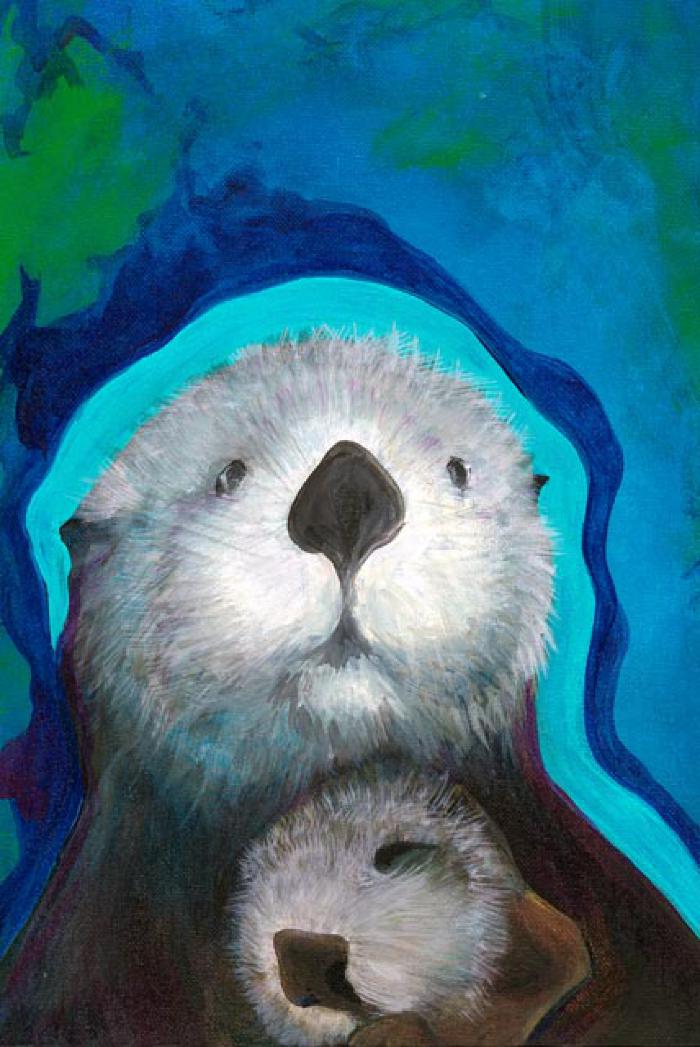Sea Otter — Arhnaq

Hunted nearly to extinction during the historic era, the sea otter (Enhydra lutris) is now a common sight in Kodiak waters. These playful mammals live in nearshore colonies where they feed on a variety of fish, shellfish, and invertebrates. Although they are not traditionally hunted for food, Alutiiqs sought sea otters for their elegant fur, which was fashioned into clothing.
In classical Alutiiq society, hunters worked in teams to pursue sea otters from kayaks. They would encircle an animal, shooting at it with bone harpoon darts each time it surfaced. Air bubbles showed the hunters the way the otter was traveling. When exhausted, the animal could be captured and clubbed to death. Hunting magic was an important part of the chase. Hunters tied amulets of eagle down and red ochre to the inside of their kayaks and dressed neatly out of respect for the animal. A good hunter could attract a sea otter by learning and repeating its vocalizations.
Alutiiq legend tells that the sea otter was originally a man. While collecting chitons he was trapped by an incoming tide. To save himself, he wished to become an otter. His transformation created all otters. Because of this connection between otters and humans, hunters are required to provide otters with special treatment. Freshly killed sea otters are traditionally taken to shore, skinned, given a drink of fresh water, and their bones buried or sunk to perpetuate the animal.
